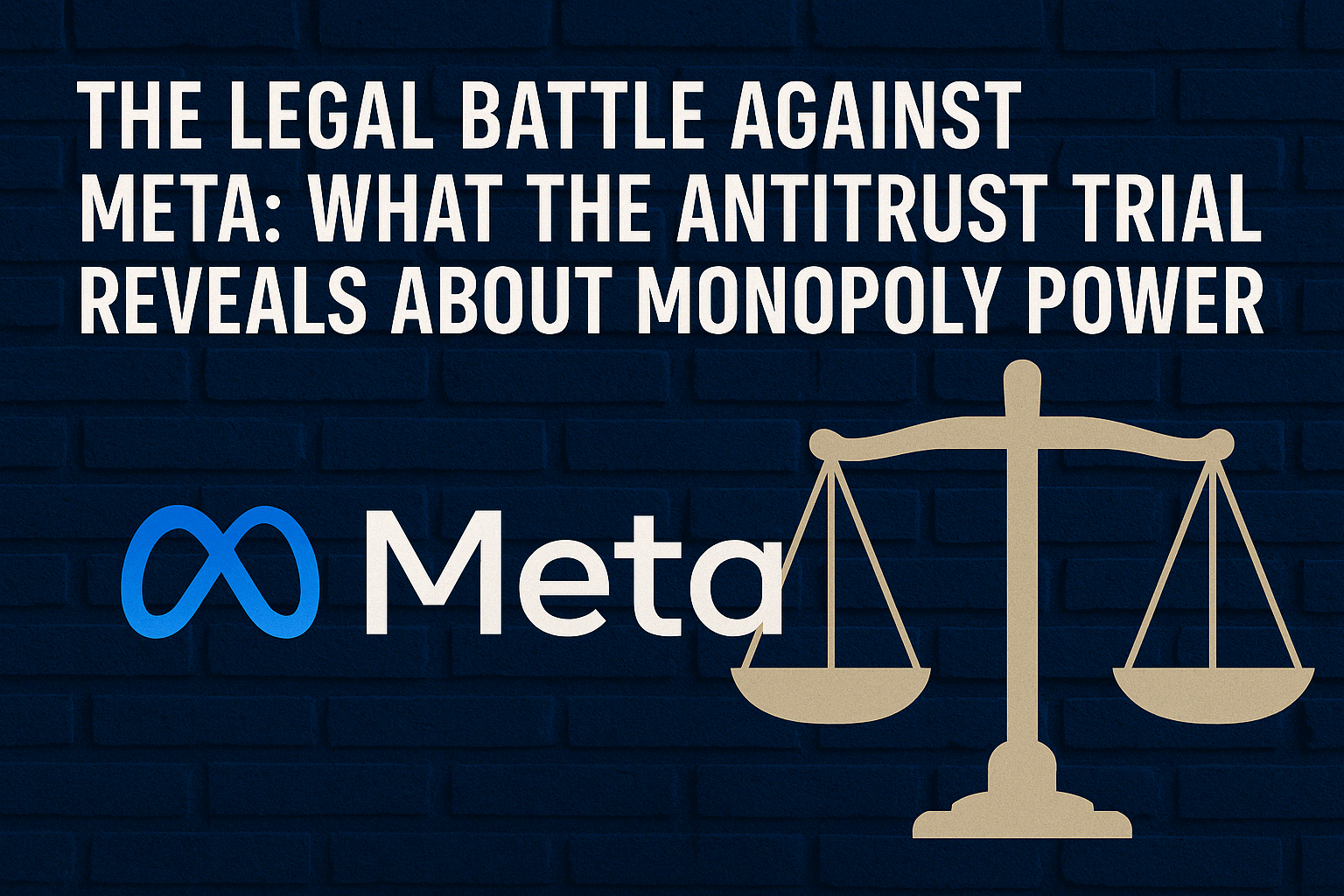The Legal Battle Against Meta: What the Antitrust Trial Reveals About Monopoly Power
The ongoing legal showdown between Meta (formerly Facebook) and U.S. regulators has sparked a nationwide conversation on the limits of corporate power, especially in the tech world. This antitrust trial is not just another courtroom drama; it’s a historic moment that could reshape how Big Tech operates, competes, and influences society. As Meta stands accused of monopolistic behavior, this trial opens the floodgates for deeper scrutiny into the business models of Silicon Valley giants.
Understanding the Antitrust Case Against Meta
The U.S. Federal Trade Commission (FTC) and several state attorneys general filed a lawsuit against Meta, alleging that the company has engaged in anti-competitive practices to maintain its dominance in the social networking space. At the heart of the lawsuit is Meta’s acquisition strategy—specifically its purchases of Instagram in 2012 and WhatsApp in 2014. Regulators argue these acquisitions were not just business expansions but strategic moves to eliminate competition.
The lawsuit claims Meta violated Section 2 of the Sherman Antitrust Act by:
- Acquiring potential competitors (like Instagram and WhatsApp) to neutralize threats
- Imposing restrictive policies on third-party developers to stifle innovation
- Creating a “walled garden” that discourages users from switching platforms
Why This Trial Matters
This antitrust trial is a watershed moment in the history of tech regulation. For years, companies like Meta, Google, Amazon, and Apple have grown with minimal government intervention. But the winds are changing. Lawmakers, consumers, and watchdog groups are now questioning whether these companies have become too powerful—to the point of undermining fair competition.
If the court rules against Meta, it could lead to:
- The unwinding of key acquisitions (potentially separating Instagram and WhatsApp from Meta)
- New restrictions on how Meta handles data and interacts with competitors
- A precedent that influences how other tech companies expand or operate
What the Trial Reveals About Monopoly Power
- Acquisition as a Weapon: The trial highlights how big companies can use acquisitions not just to grow, but to eliminate threats. Emails from Meta leadership, including Mark Zuckerberg, show internal discussions about the strategic importance of buying Instagram and WhatsApp to neutralize potential competition.
- Control Over the Ecosystem: By owning multiple major platforms, Meta has vast control over the digital ecosystem. This includes user data, advertising revenues, and even the rules third-party developers must follow. Regulators argue this stifles innovation and consumer choice.
- Barriers to Entry: Startups and new social networks struggle to gain traction because they can’t compete with Meta’s scale, reach, and financial resources. The trial brings attention to how this imbalance can create insurmountable barriers for newcomers.
- Consumer Harm Beyond Prices: Traditional antitrust cases focus on price manipulation. But in the digital era, harm can also mean lack of privacy, reduced innovation, and fewer choices. The Meta trial is expanding how courts interpret consumer harm in the 21st century.
How Meta’s Trial Affects Consumers and Businesses
This landmark antitrust case against Meta affects not only tech companies and regulators but also everyday users and businesses:
- For Users: A breakup or stricter regulation could mean more privacy, greater control over personal data, and better service from emerging competitors.
- For Marketers and Advertisers: Meta’s monopoly over social media platforms gives it enormous power over digital advertising. Changes from this trial could diversify the ad market.
- For Entrepreneurs and Startups: A ruling against Meta could open the doors for more innovation, giving new platforms a fighting chance to compete.
The Bigger Picture: Tech Regulation in the 2020s
Meta’s antitrust trial is just one chapter in a larger story. Governments around the world are scrutinizing Big Tech:
- The European Union has implemented the Digital Markets Act to curb monopolistic behavior
- Australia passed laws to make tech giants pay for news content
- India and other countries are also exploring regulatory frameworks
The Meta trial is a signal that the U.S. is catching up in the global race to regulate digital markets. It also reflects a growing consensus that unchecked tech monopolies can be as harmful as traditional ones.
What to Watch For Next
As the trial unfolds, here are a few key things to keep an eye on:
- Will the court force Meta to divest Instagram and WhatsApp?
- How will Meta defend its past acquisitions and current business practices?
- What kind of regulatory framework might emerge from the case?
- How will other tech companies respond if Meta loses?
Conclusion
The legal battle against Meta is more than just a trial; it’s a test of how modern societies balance innovation with accountability. Whether or not Meta is found guilty of monopolistic behavior, the trial is already reshaping how we think about power in the digital age.
As the world watches, one thing is clear: the outcome of this case will echo far beyond Silicon Valley. It could redefine the rules of digital engagement for generations to come.









